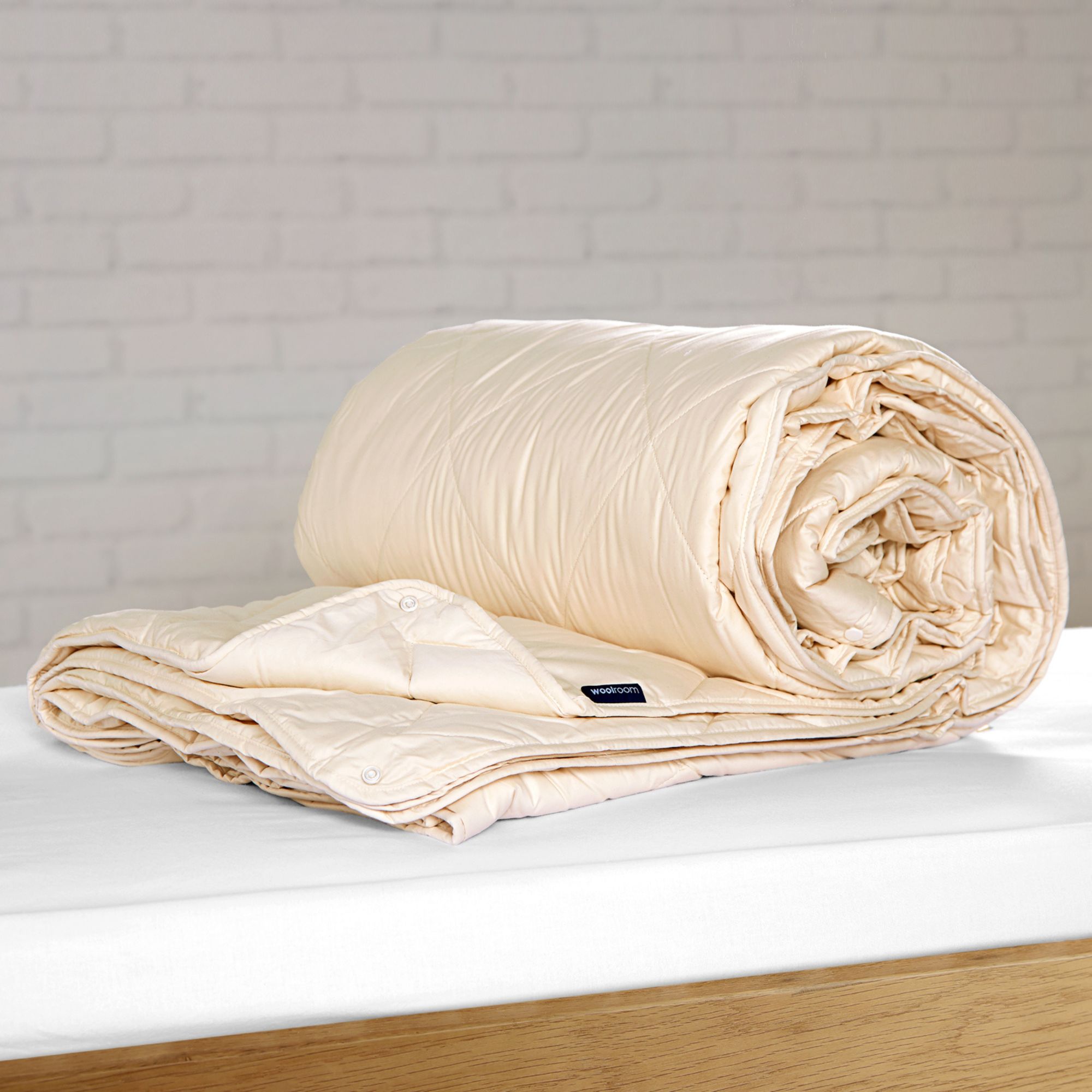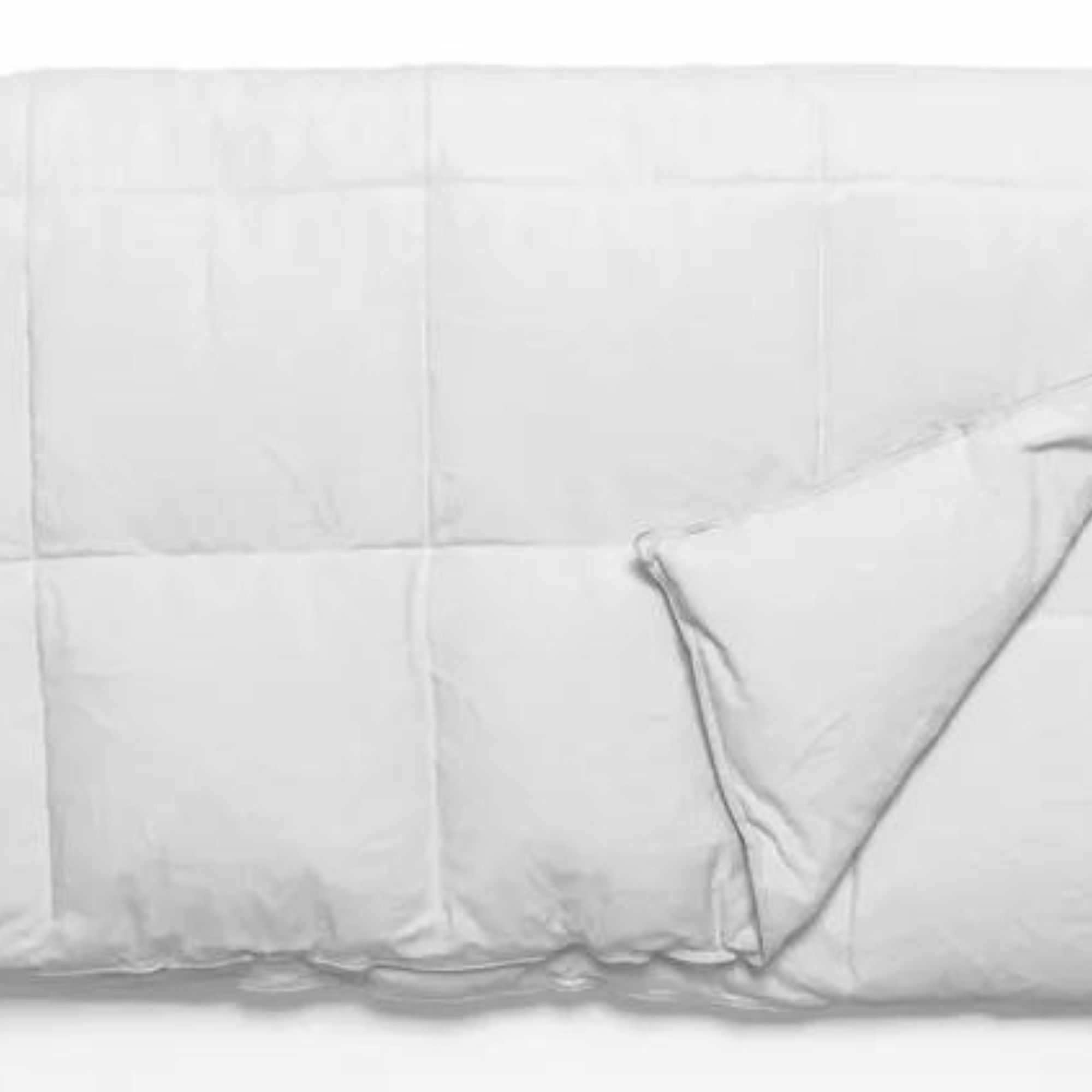Are antibacterial duvets worth it? A sleep editor investigates
The best antibacterial bedding should help you sleep fresh, but you'll have to pay for the privilege.
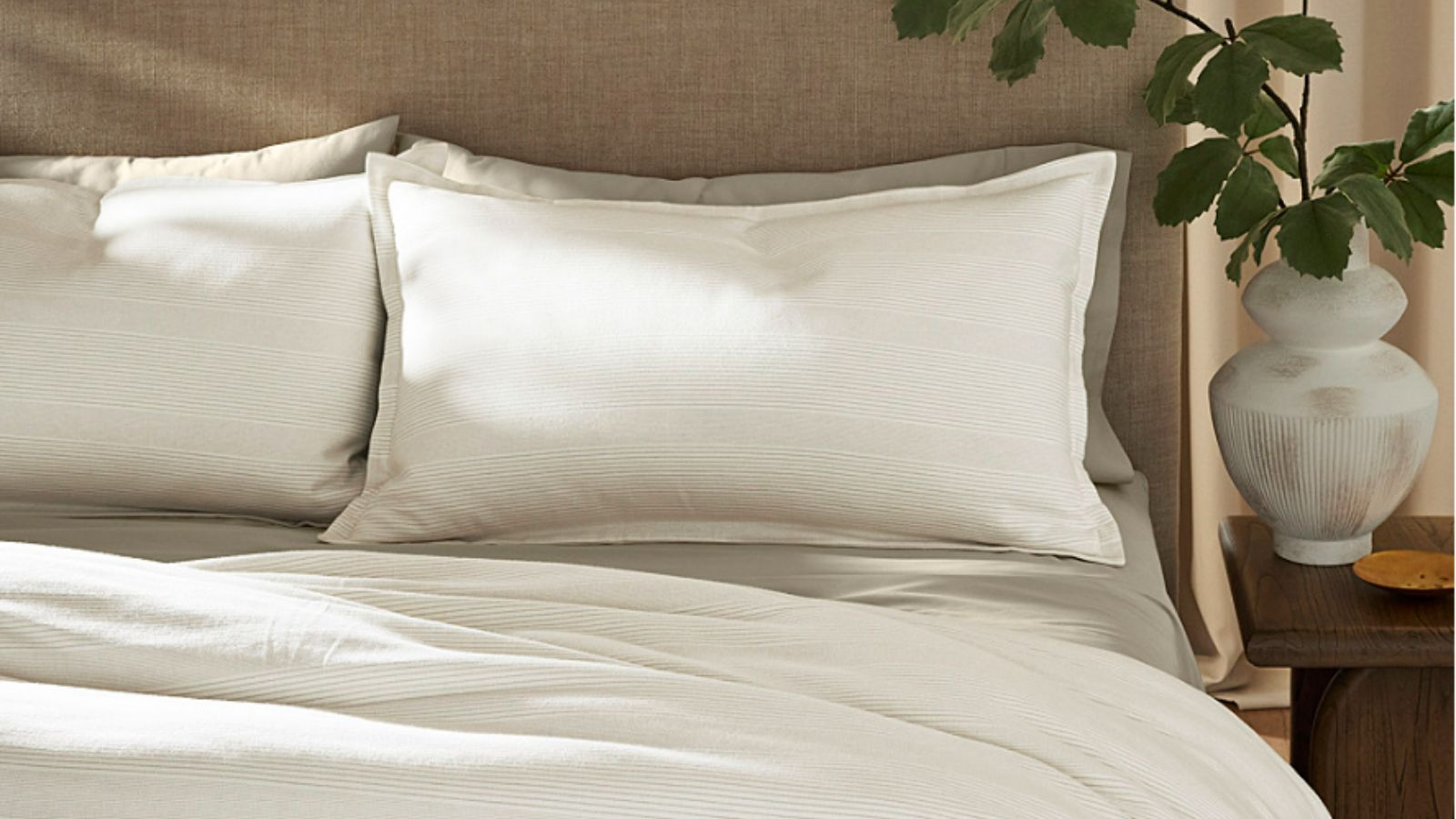

If you suffer from night sweats or hot flushes, or you simply tend to run a little warm, you might appreciate an antibacterial duvet. These cooling comforters kill the bacteria that breed in hot, damp environments, such as bedrooms, so that you can sleep cool and feel fresh.
Soft to the touch and kind to your skin, antibacterial bedding could be a gamechanger for sensitive sleepers and health-conscious shoppers. With that said, it can be seriously expensive: some of the best antibacterial bedding costs upwards of $500. As a sleep editor and a sales hunter, I'm often asked whether antibacterial duvets are really worth it.
I think so − and the experts agree. I've consulted doctors, nurses, and specialist sleep coaches, who all believe that the best duvet inserts are those that fight bacteria, mold, and dust mites so that you can sleep easy.
What makes a duvet antibacterial?

As H&G's resident sleep writer, I get paid to test sheets, shams, and comforters. Some parts of my job are simpler than others. It's easy to assess the softness of a duvet, for example: all I need to do is feel the fabric between my fingers. A cooling comforter should feel crisp and chill against my skin. It's much harder to evaluate a duvet's antibacterial properties, since I can't see or feel them at work.
In times like these, I scour the specifications for antibacterial buzzwords, such as 'odor control' and 'hypoallergenic', to understand what's happening in the sheets while I sleep. If you're keen to learn more about the science of sleep, but you need a breakdown of the buzzwords, then you're in luck: sleep expert Hafiz Shariff has agreed to share his insights.
Hafiz explains that 'antibacterial duvets are made with materials that inhibit the growth of bacteria'. These might be synthetic materials, such as polyester, or something more natural, such as wool. 'The fabrics may also be treated with antimicrobial materials, such as silver or copper ions'. These antibacterial agents might be woven into the comforter, applied as a film, or washed over the fabric.

Hafiz is a sleep expert and the founder of Owl Lark, a bedding brand on a mission to help you sleep better and live more. Hafiz is passionate about ensuring people can get better sleep, and has extensively researched human circadian rhythms, coining the term 'circadian fitness'.
What are the benefits of antibacterial duvets?
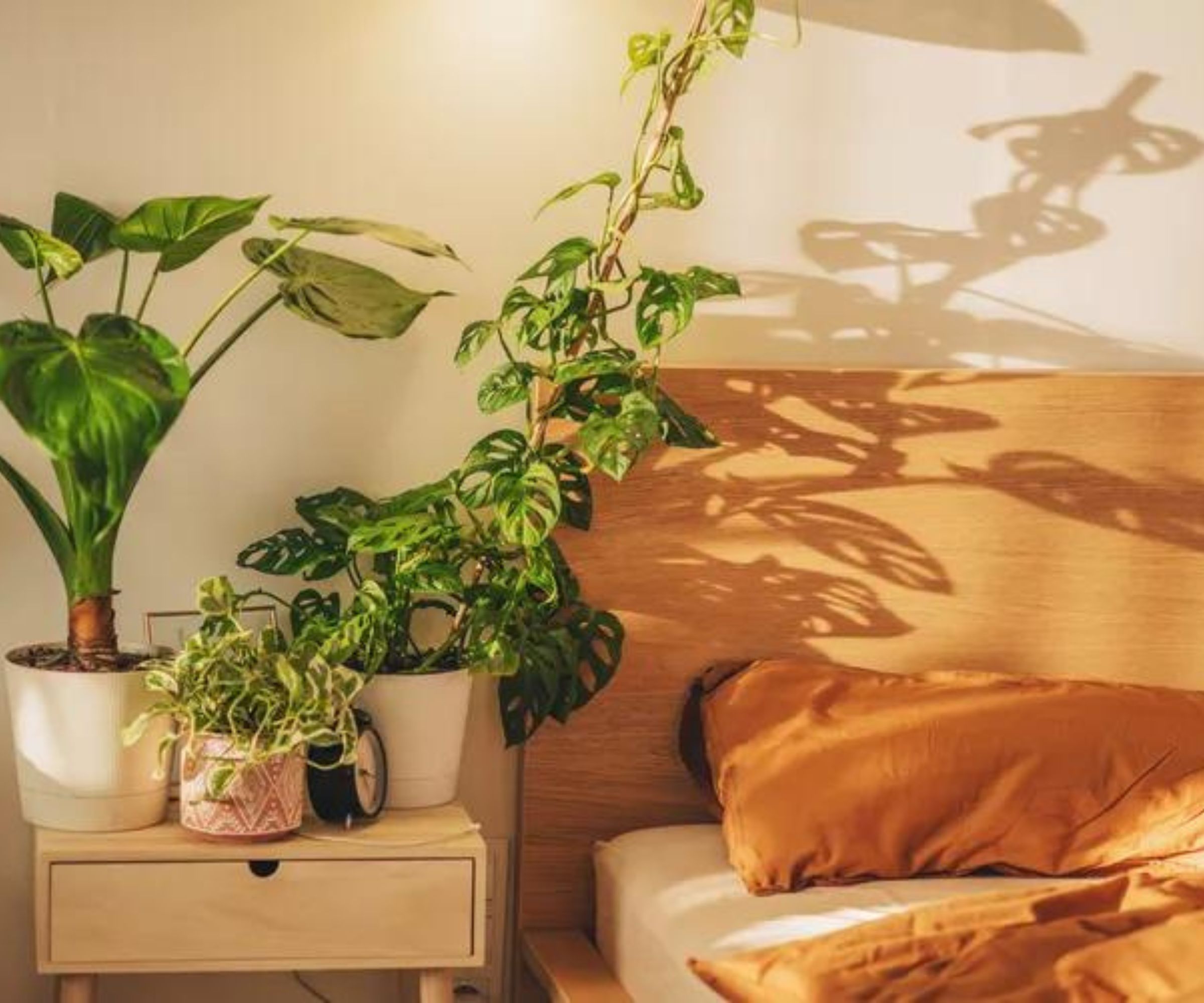
There are obvious health benefits to sleeping with an antibacterial duvet. These comforters work to slow and stop the build-up of bad bacteria, which cause foul odors and irritate your skin. Some of the best antibacterial duvets are hypoallergenic, too. That makes them suitable for sensitive sleepers, as well as anyone who suffers from seasonal allergies.
According to certified sleep coach Julia Siemen, there are other, more practical benefits to sleeping with an antibacterial duvet. These comforters are a lot lower-maintenance than you might think. That's because 'the antimicrobial properties in these duvets reduce the necessity for frequent washing, diminishing the effort and maintenance. This feature not only adds convenience but also increases the longevity of the bedding'. This is good news for anyone who wants to spend once and spend well on an antibacterial duvet.
Julia understands that the best duvet inserts should wash well, keep you cool, and look good, too. That's an unexpected upside of antibacterial bedding. Since these duvets 'are also resistant to odors caused by microbes, they can prevent staining, which contributes to a cleaner and more aesthetically pleasing bed'. That means no unsightly yellow stains marking your mattress – just a clean white comforter.

Julia is a certified Sleep Science Coach dedicated to helping you get a better night’s sleep. With her expertise and passion for sleep science, she is always happy to provide knowledge for restful sleep. Her goal is to promote a healthy and happy lifestyle by emphasizing the importance of sleep health.
You can find antibacterial bedding in all the major home retailers, as well as specialist sleep stores. There are top-quality comforters made from wool, which is naturally moisture-wicking and antimicrobial, as well as polyester pieces that perform exceptionally at a lower price point.
With so much on offer, it can be difficult to know where to start. That's where I come in. I've spent hours searching the web to find the most effective and affordable antibacterial duvets. I've narrowed it down to my top three to suit every bedroom and budget.
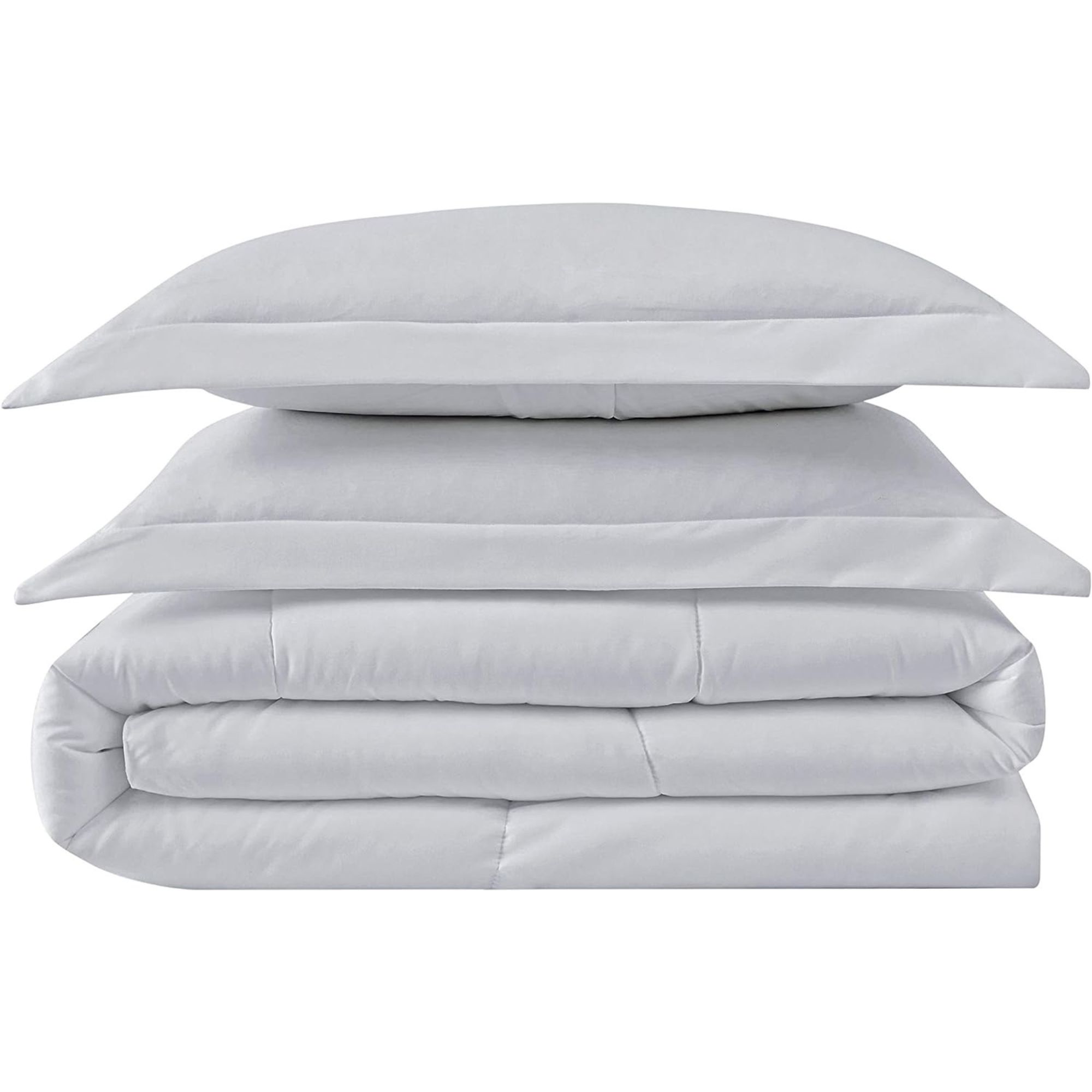
This comforter incorporates antibacterial and odor control technology that stays on your sheets for lasting protection, wash after wash. Antibacterial bedding would make a great gift for pet owners or gym bunnies this holiday season.
What are the downsides of antibacterial duvets?

Antibacterial duvets are designed to prevent stains, absorb sweat and minimize malodors to keep you just the right side of cool and dry. This is a careful balancing act, which sleep scientists take a lot of time to refine and perfect. It should come as no surprise that such premium bedding sells at a premium price point. Some of the best antibacterial bedding costs hundreds of dollars upfront.
Budget-conscious buyers might be tempted to pick up an antibacterial duvet on the cheap. Phil Hu advises against it. As the CEO of Saybrook Sleep, Phil knows a thing or two about the best bedding. He understands that 'many antibacterial treatments can wear off over time'. The lower the price of the duvet, the higher the likelihood that the brand is cutting corners to use cheap fabrics and ineffective antibacterial treatments.
Even a top-quality comforter can't kill all the bacteria in your bed. That's why Phil 'always recommends that people shower before bed and implement regular wash cycles rather than rely on antibacterial bedding to keep the bed clean'. It's worth learning how to wash a comforter in order to get the best out of your bedding.

Phil is an entrepreneur and inventor passionate about solving everyday problems through meticulous design and uncompromising standards. After years of working late nights at Harvard Business School, Phil has found that quality sleep is the only thing that can fuel successful companies.
What are the alternatives to antibacterial duvets?

Some health-conscious shoppers might be keen to try antibacterial bedding but loath to part with their current comforter. Others might forgo a duvet to sleep under sheets and hesitate to drop hundreds of dollars on antibacterial bedding they just won't use.
If that sounds like you, senior health expert Susan Williams wants you to take stock of your options. 'If the idea of antibacterial bedding appeals to you, but you're unsure about a duvet, you should consider antibacterial sheets or pillowcases, which come into more direct contact with the skin'. Hot sleepers who still appreciate the weight of a comforter might like to layer antibacterial sheets between their fitted sheet and an ordinary comforter, while antibacterial pillowcases could be a gamechanger for sleepers who suffer from acne.
For buyers on a budget that can't stretch to new bedding, Susan suggests picking up a 'pillow spray with antibacterial properties as a supplementary measure'. You can buy a 4-oz. bottle for less than $15 at Amazon. In a pinch, 'regular washing of bedding in hot water can effectively manage bacteria and allergens without requiring specialized products'.

Susan is a registered nurse and a senior health expert at Retirement Being, an organization which provides comprehensive resources and guidance for ageing demographics. She understands the importance of sleep for seniors and is passionate about educating all ages on sleep hygiene.
Antibacterial duvets FAQs
Which antibacterial duvet is best?
There's no such thing as the best antibacterial duvet − only the duvet that best suits your sleep needs. If you're shopping for a comforter that's naturally moisture-wicking and antimicrobial, you might like Woolroom's Washable Wool Comforter. Anyone keen to purchase vegan products might sleep more comfortably with the Saatva Down Alternative Duvet. Buyers on a budget will appreciate the Truly Calm Antimicrobial Comforter, which is soft on your skin and kind to your wallet.
Will antibacterial bedding kill mold?
Yes. Antibacterial bedding is designed to combat and kill mold and mites, though it shouldn't be your only line of defence. If you keep finding mold in your walls or on your ceiling, it might be worth investing in the best dehumidifier to clear the air.
Our verdict
Whether an antibacterial duvet is worth the price all depends upon how much you use it. The best bedding should wash well for easy maintenance and keep you cool and dry for year-round use. While even the best antibacterial duvet cannot kill all the mold, mites and moisture in a room, you can help to keep your bed clean by showering before you sleep and washing your bedding in hot water.
If you've tried everything, but you're still sneezing and spluttering, you could invest in a hypoallergenic mattress. A mattress is the biggest bit of bedding you can get, so it should make all the difference to a seriously sensitive sleeper.
Sign up to the Homes & Gardens newsletter
Design expertise in your inbox – from inspiring decorating ideas and beautiful celebrity homes to practical gardening advice and shopping round-ups.

Emilia is our resident sleep writer. She spends her days tracking down the lowest prices on the best mattresses and bedding and spends her nights testing them out from the comfort of her own home. Emilia leads a team of testers across America to find the best mattress for every sleep style, body type, and budget.
Emilia's quest to learn how to sleep better takes her all around the world, from the 3Z mattress factory in Glendale, Arizona to the Hästens headquarters in Köping, Sweden. She's interviewed luxury bedding designers at Shleep and Pure Parima, as well as the Design Manager at IKEA. Before she joined Homes & Gardens, Emilia studied English at the University of Oxford.
-
 How to grow lupine – expert advice on growing this dramatic and vibrant cottage garden flower
How to grow lupine – expert advice on growing this dramatic and vibrant cottage garden flowerVibrantly colored flower stalks make swathes of lupines a sight to see in meadows and cut flower gardens alike
By Ellen Wells
-
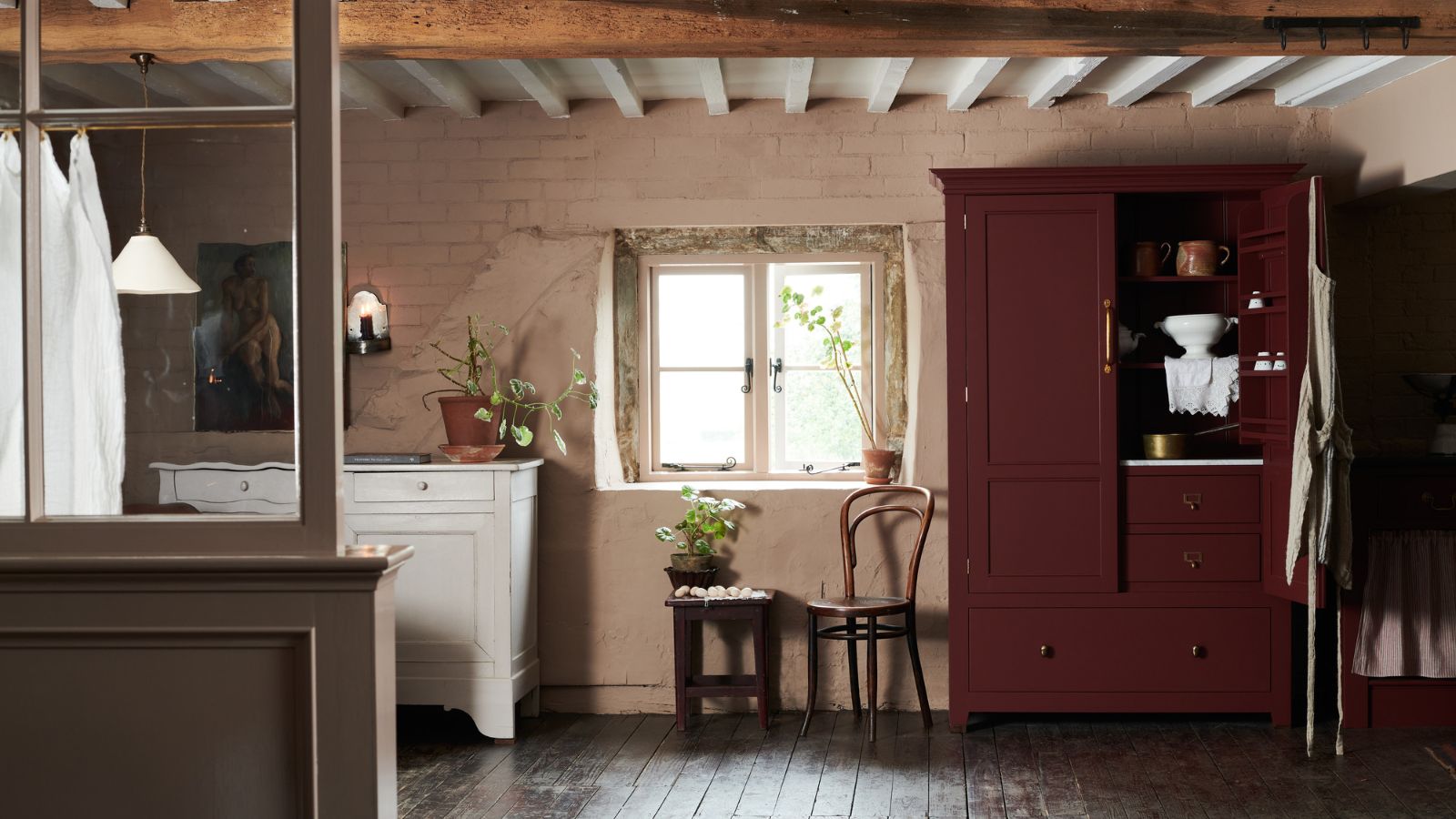 I’m a professional cleaner, and I swear by these quick and easy tips to clean pet hair from wooden floors
I’m a professional cleaner, and I swear by these quick and easy tips to clean pet hair from wooden floorsStaying on top of the mess makes it 10 times easier
By Carolina Kazimierski
